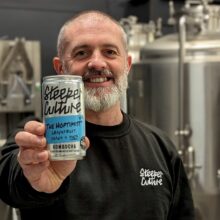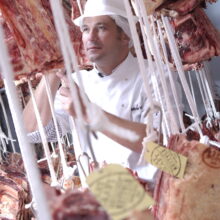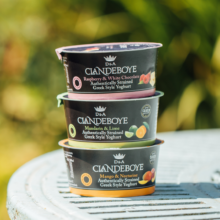Local, Healthy And Sustainable Are The Ways Of The Future In Farming And Food Industry

It has been a tough week, but some good news helped to keep my spirits up. Firstly, the encouraging news that Executive ministers approved financial support for some traders hit by Covid -19 restrictions who so far have not received any help.
The plans, put forward by Economy minister Diane Dodd’s, will be open to people who do not have premises and supply chain firms who supply closed premises. These businesses were previously excluded from Covid support. The minister also advised that she has asked her officials to “develop a tourism and hospitality scheme to address gaps.” This is good news for the many food and drink businesses in the supply chain to hospitality, as well as tourism, thatwere omitted from previous schemes.
Other good news came in the results of a recent survey by Barclays Bank which showed that more shoppers than everare buying food products in local stores and farm shops during the coronavirus pandemic. You can see it for yourself, local farm shops and home delivery of local produce, such as Moo to You and Tasty Grub Club, are growing in strength.
According to Barclays more than a quarter of shoppers now purchase products regularly in these retail outlets, which is great news for the owners of these stores, and also for local suppliers who supply the growing network of independent delis, and farm shops across Northern Ireland. Shoppers now have plenty of excellent stores to choose from for quality and fresh foods.
The study also found that nearly eight in 10 of our farmers are planning to sell and process at least some of their produce locally within the next three years. It was encouraging to see the UFU launch their recent competition for farm diversification at ufuni.org/events/farm-diversification-competition-2020.
This independent research by Barclays, reinforces columns I’ve penned for Farm Week in recent months about shopping trends switching to local stores, especially farm shops, a retail sector which has seen rapid growth especially over the past year. Growing coronavirus fears and concern over lengthy queues at many supermarkets are clearly encouraging a growing number of people to shop closer to home. And many entrepreneurs are responding to the market demand.
Interestingly, the research found that over 300,000 people had never visited a farm shop prior to the pandemic, but now visit regularly. Also significant is the finding that nearly two-thirds of those suggest they will be buying more home grown produce as a result of the pandemic and emerging concerns about Brexit. There’s clearly a growing concern of the availability of food from outside Northern Ireland if the Brexit Irish Sea barriers materialise.
The study also found a growing preference for sustainably sourced foods, with 27 percent seeking to purchase seasonal produce. Indeed, over half of those surveyed were keen to help the sector to become carbon neutral and reckoned that grocery shopping at local stores and farm shops is better for the environment. In addition, 48 percent think purchasing from these local stores helps them to better understand where their produce has come from.
This situation provides a real opportunity for local producers to build good business. And there’s an opportunity for Food NI to step up its role in promoting these companies especially now in Northern Ireland. We would be delighted to take the lead in such a campaign that would be extremely beneficial for our smaller companies and, of course, shoppers. It could stimulate employment and innovation throughout Northern Ireland.
We certainly possess the expertise for such an initiative with our marketing and event management experience on driving the hugely successful Year of Food and Drink in 2016 as well as before then and since.
Food NI is also exceptionally well-placed to work with farmers who are eager to bring their products to market in Northern Ireland.
The research by Barclays seeks to back up its Sustainability through Agri-Tech campaign that’s designed to help the industry become more carbon net zero, a commitment that we would be keen to assist. Local, healthy and sustainable are the ways of the future.








